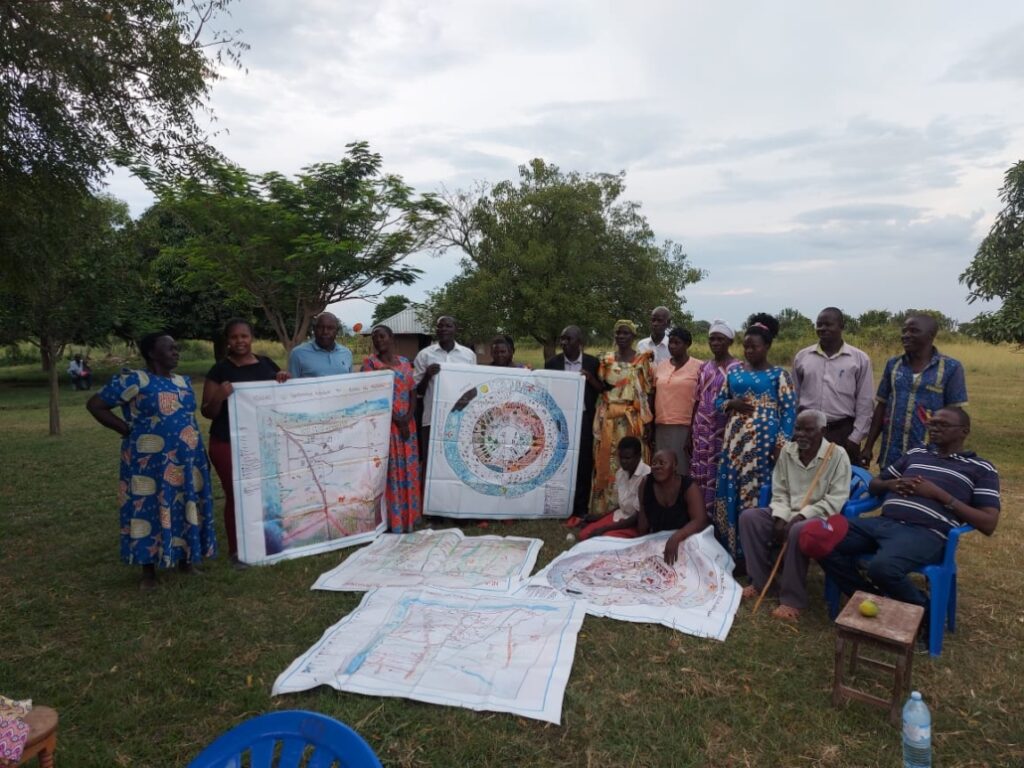
Success Story-Buliisa
Kwanke Alice,61 years old, a small holder farmer from the Bagungu community in Buliisa District, Western Uganda, grew up deeply connected to the land and its ancestral traditions. For her, farming was not merely a means of sustenance but a sacred duty tied to the stewardship of her community’s Sacred Natural Sites, which her ancestors had carefully protected for generations.
However, the discovery of oil in Buliisa brought rapid changes that threatened both her land and her community’s way of life. Expanding oil facilities like the construction of an oil Central Processing Facility (CPF) in Ngwedo subcounty, encroached on farmland, damaged water sources, and disturbed the Sacred Natural Sites that had long been integral to Bagungu identity and environmental balance.
Alice’s challenges intensified as she noticed an increasing disinterest among the youth in traditional farming practices, seeing these methods as outdated compared to the modern world. Many young people migrated to cities, leaving fewer custodians to uphold the age-old rituals tied to farming and land care. This shift strained Alice and other elders who felt the weight of preserving not only the land but the Bagungu’s cultural heritage.
In 2022, AFRICE, with support from the Putnam Foundation, organized community dialogues at the Kitahura Community Seed Learning Centre. These gatherings brought together custodians of Sacred Natural Sites, women seed keepers, and traditional farmers to share knowledge and explore strategies to protect their land and culture. The dialogues were transformative for Alice. She discovered practical ways to integrate agroecological methods with the cultural wisdom she had inherited. Inspired by the exchange, she established a homestead garden, using organic practices and cultivating indigenous crops like Bambara nuts, millet, sweet potatoes, and cassava—foods that carried her community’s identity and history.
For Alice, the garden was more than a source of food. “Our land and these seeds are alive with the stories of our ancestors,” she shared. “Every season we plant and harvest, we are showing respect for their legacy and protecting what is sacred.”
Alice’s efforts sparked interest among other women and gradually drew young people back to their roots. Together, they revived a practice that had once been central to the Bagungu: seasonal seed-blessing ceremonies. These gatherings, held near respective Sacred Sites, allows custodians to bless and offer thanks for the seeds, reinforcing the community’s relationship with the land.
Inspired by Alice’s leadership as a custodian of seeds, a group of women came together to form the Bugungu women seed custodians’ group, an alliance committed to using farming as a means of cultural preservation and ecological protection. After sharing Alice’s methods and organizing different dialogues, the women custodians of seeds are now encouraging more families to adopt agroecological practices that honour the land. This collective action has strengthened the ties between farming and the safeguarding of Sacred Natural Sites, empowering the community to resist external pressures threatening their environment.
Through Putnam Foundation’s support, the Bagungu are now reclaiming their heritage, and young women are rediscovering the value of their land and traditions. Alice’s story exemplifies how revitalizing indigenous practices can protect both cultural identity and biodiversity, ensuring a resilient future for her community.